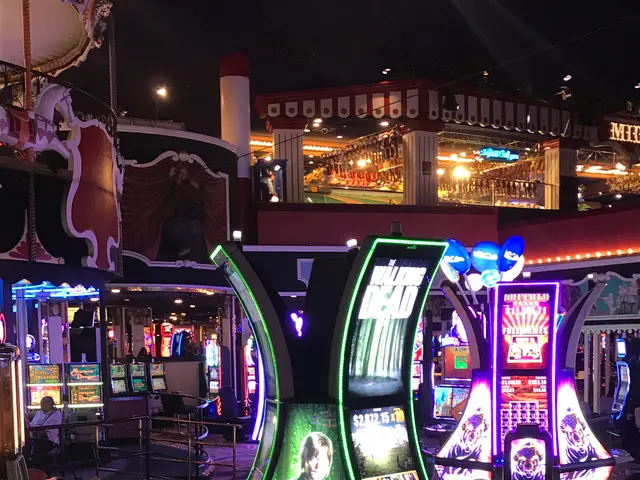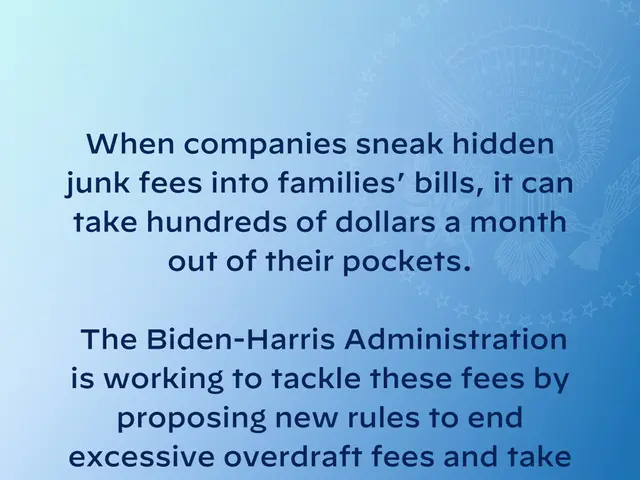Casinos in Thailand: Learning from Japan's Mistakes
- Ben Blaschke - Managing Editor, IAG
Tightrope Act in Asia: Navigating on the Brink of Conflict
🔍 Take a Leaf Out of Japan's BookThailand's upcoming entertainment complexes can benefit immensely from Japan's lessons, ensuring a smoother and more successful journey. Here's how:
🚀 Clear-Cut Regulation
Did you know Japan spent over two decades arguing about Integrated Resort (IR) regulations before finally giving the green light to MGM Osaka under the 2018 IR law[4]? It underlines the importance of crystal-clear rules around casino operations, taxation, and social safeguards. Japan's 3% casino floor space limit[2] showcases an example that Thailand can emulate to balance gaming with broader tourism offerings.
💎 Partnerships for the Win
The joint venture structure of MGM Osaka (with MGM Resorts and Orix Corp each owning 42.5%, and local firms like Panasonic owning the rest[4]) demonstrates the power of aligning international expertise with local stakeholders. Thailand needs to attract top-tier operators (like Galaxy, Melco, and MGM[3]) and foster domestic participation to tackle cultural and logistical challenges.
🌐 Phased Development
Japan's Yumeshima Phase 2 blueprint includes ambitious projects like motorsports circuits, water parks, and MICE facilities[2]. Thailand must plan for long-term tourism by integrating multi-phase expansions, ensuring infrastructure like transportation networks and utilities can keep pace with development.
🎡 Variety is the Spice of Life
MGM Osaka dedicates an astonishing 97% of its space to convention centers, luxury hotels, and entertainment venues[2][5], a strategy that reduces reliance on gambling revenue. Thailand's entertainment complexes should follow suit by focusing on family-friendly attractions, retail, and dining to appeal to a broader demographic.
⚠️ Risk Mitigation
Japan's IR construction faces delays due to overlapping with EXPO 2025 Osaka[5]. Thailand should learn from this and coordinate timelines around major events and geopolitical factors to avoid cost overruns.
💬 Keeping It RealTo succeed, Thailand's entertainment complexes cannot appear to be a cash grab or a quick buck for either the government or the international casino operators. Rather, a genuine, open, and honest collaboration between stakeholders, including the 72 million people of Thailand, is essential.
💡 Communication is KeyThailand must engage in clear, concise, and thoughtful dialogue to address concerns about entertainment complexes and explain how they can benefit society, following the example of successful jurisdictions like Singapore, Las Vegas, and Macau.
🎯 Key Recommendations for Thailand:- Reliable MICE Facilities: Inspired by Osaka’s 400,000 sq. ft. conference space[2], prioritize state-of-the-art MICE facilities to attract business tourism.- Local Ties: Partner with Thai conglomerates for a more efficient supply chain and a stronger connection with the local community.- Strict Compliance: Implement strict anti-money laundering protocols and addiction prevention programs, similar to measures Japan has in place[1][4].- Regional Integration: Plan entertainment complexes to complement Thailand's existing tourism hotspots rather than compete with them.
By embracing these strategies, Thailand can create sustainable, diversified tourism hubs that will attract visitors from around the world.
- Thailand, learning from Japan's journey, should establish clear and concise regulations for its entertainment complexes to ensure a smoother journey.
- MGM Osaka's joint venture structure with local stakeholders demonstrates the importance of aligning international expertise with local partners for Thailand's upcoming casinos.
- To attract top-tier operators like Galaxy, Melco, and MGM, Thailand should plan for long-term phased developments, focusing on family-friendly attractions, retail, and dining.
- Thailand must coordinate timelines to avoid delays in construction, as seen with Japan's IR projects and EXPO 2025 Osaka.
- To succeed, Thailand's entertainment complexes should avoid being perceived as a cash grab and instead must collaborate genuinely with the people and stakeholders, engaging in clear, concise, and thoughtful dialogue.
- Thailand can create sustainable, diversified tourism hubs by prioritizing state-of-the-art MICE facilities, partnering with local conglomerates, implementing strict anti-money laundering protocols and addiction prevention programs, and planning entertainment complexes to complement existing tourism hotspots rather than compete with them.








